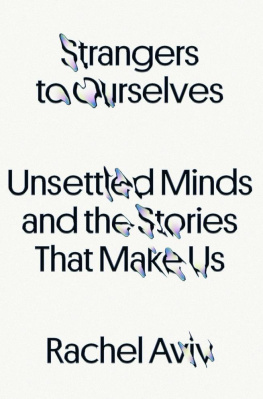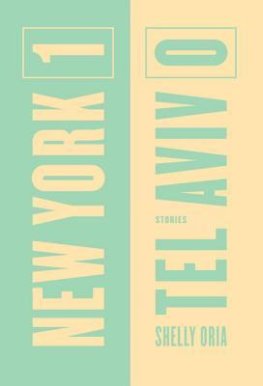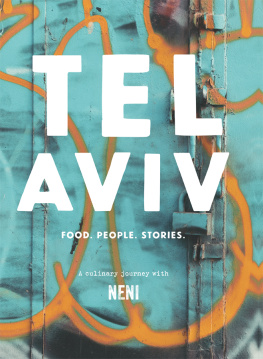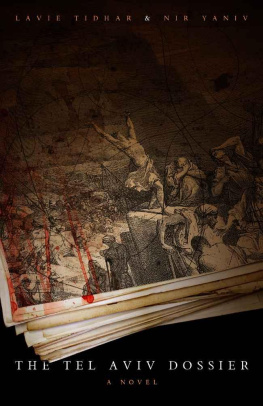
The author and publisher have provided this e-book to you for your personal use only. You may not make this e-book publicly available in any way. Copyright infringement is against the law. If you believe the copy of this e-book you are reading infringes on the authors copyright, please notify the publisher at: us.macmillanusa.com/piracy.
To my parents
In the early weeks of first grade, I made a friend named Elizabeth. She was the oldest child in our class but tiny, with thin, knobby limbs. We connected over the game mancala, dropping marbles into a wooden board with fourteen shallow holes. I avoided other classmates so Id be ready when Elizabeth asked me to play. Somehow she always did. I felt that I had willed our friendship into being.
I asked my mom why Elizabeths house, in Bloomfield Hills, a wealthy suburb of Detroit, smelled so different from ours. I was disappointed that her answerlaundry detergentfelt so ordinary. Elizabeths house was so large that I was sure she got lost in it. She had a yellow canopy bed, a walk-in closet, a swimming pool. She showed me how when she brushed her blond hair it got even lighter. Her family had a refrigerator in their basement devoted just to sodas, and one day Elizabeth proposed that we feed Coke to our knees. We tried the experiment in her babysitters car and laughed as Coke dripped onto the seats. It seemed incredible that there was only one way to drink.
At home, I sometimes pretended I was Elizabeth. I walked into rooms and imagined I didnt know where they led. It seemed like a fluke, a bit of bad luck, that I had been born as me rather than as Elizabeth. I remember waking up forlorn after a dream: I was given the chance to become Elizabeth if I picked the right seat on the school bus. I walked past thirteen rows, overwhelmed by the opportunity, and chose the wrong seat.
I had just turned six, and the boundaries between people felt porous. During music class, I was assigned a seat between two boys: On one side was Sloan, the tallest kid in first grade. He had a perennially runny nose, the snot greenish. On the other side was Brent, who was chubby and breathed so heavily that I sometimes checked to see if hed fallen asleep. Their physical attributes seemed contagious. To protect myself, I tried to sit at the centermost point of my chair, as far away as possible from both boys. If I moved toward Sloan, I felt Id grow too tall. If I inched toward Brent, Id become fat. My older sister, Sari, and I had watched a news segment about an obese man who had a heart attack in bed and then had to be removed from his apartment by a crane. We tried to imagine the logistics: Did they have to knock down the walls? How did they attach the man to the machine? I decided to err on the side of Sloan.
At lunch, everyone in my class was required to take at least a mouse taste of each dishone noodle, a single pea. Many years later, my first-grade teacher, Ms. Calfin, told me, Youd just sit there looking at your mouse tastes pensively, and Id be like, Go ahead! We only have twenty minutes! Keep going! But it was a slow roll. Two weeks into the school year, I asked for permission to visit the bathroom after lunch. Do you have to go potty? Ms. Calfin asked. She said that I told her that I just wanted to look in the mirror.
A few days later, I wouldnt touch the mouse tastes that Ms. Calfin had put on my plate. She asked if instead Id be going to the salad bar, where I sometimes got croutons. I tried to hide my grin when I said no. She looked at me carefully and made an expression that I didnt know how to classifyit looked like a frown and a smile at the same time. I could feel her contemplating who I was, and her focus was exhilarating. I loved her and worried that my feelings were unreciprocated. It seemed to me that she preferred the stolid children whose mothers volunteered at school.
For the next two days, I mostly refused to eat or drink. I dont remember my reasoning, only the reactions of the adults and my vague sense of pride. I got the idea from Yom Kippur, the day of atonement, which wed celebrated the week before. It was the first time I realized that it was possible to say no to food. The decision retained the religious energy from the holiday and carried an aura of martyrdom.
I went to Hebrew school three times a week and liked to entertain the idea that I had some invisible channels of communication with God. Several times a day, I prayed for my family to be healthy until we were eighty-seven years or older, repeating me and Mom several times, because our survival felt most important. I remember walking on the pebbles in my dads girlfriends backyard and realizing that every step had been preordained by God. But the epiphany was eclipsed by self-consciousness; I felt that maybe I was having my burning-bush moment. The content of the revelation was secondary to my desire to distinguish myself as someone capable of having one.
On September 30, 1988, I told my mom that I was so dizzy I felt I would bump into a wall. I had barely eaten for three days. She took me to the pediatrician. I was thinking, Well, theyll give you some fluids, and then Ill take you home, my mom later told me. She described me as an exuberant and silly six-year-old. But my dads girlfriend, Linda, who became my stepmom, recalled that in her presence I was the saddest child she had ever known. When presented with activities that she assumed would excite me, I often replied with the same phrase: Whats so big about that? Linda observed that I had an unusual ability to sit completely still while silently crying, often at the kitchen table. My dad would tell me to eat and I would refuse, sometimes for more than an hour, until he gave up and drove me to school.
My doctor noted that I had lost four pounds in the last month. Until recently Id had a normal diet, he wrote, consisting mostly of pizza, chicken, cereal. He described my current accomplishments as running, jumping, riding two-wheeler. For personal/social, he noted that I was bored. He advised my mom to take me to Childrens Hospital of Michigan, in Detroit, where I was admitted for failure to eat. A psychiatrist there described me as a well developed but very thin female in no acute distress.
After interviewing my mother and father, who had divorced a year earlier and were still fighting over custody, one doctor at the hospital wrote, Her mother states that her father pokes fun at obese individuals, and the father did not protest this statement. My father, on the other hand, proposed that my problem originated with my mother, who was overly concerned with foods. She did stockpile so many whole-grain breads that, when we opened the freezer door, loaves bought at farmers markets around Detroit would sometimes topple out. But she had a relatively normal, if passionate, relationship with food. Like many women her age, she occasionally tried to diet, with flagging conviction.
The week before my hospitalization, my mom kept a journal for meI couldnt write yet, so she transcribed as I talkedbut I shared no details about my state of mind, only chronological accounts of my days interspersed with questions like, Where does a snakes diarrhea come out of? and Why dont people have tails? My mom, who had recently broken up with her boyfriend, kept her own journal too. That week, she recorded a dreamshe was always documenting her dreamsin which she asked a gardener to take apart our house brick by brick. All that remains is dirt and the cement shape of the house, she wrote.
On my first evening at the hospital, a nurse presented me with a tray of food, which I refused. My mom was hungry, so she ate it instead. They got very mad at me, she told me. I was not to confuse what I ate with what you ate. The next day, the nurses gave me an IV, because Id become dehydrated.
Next page












